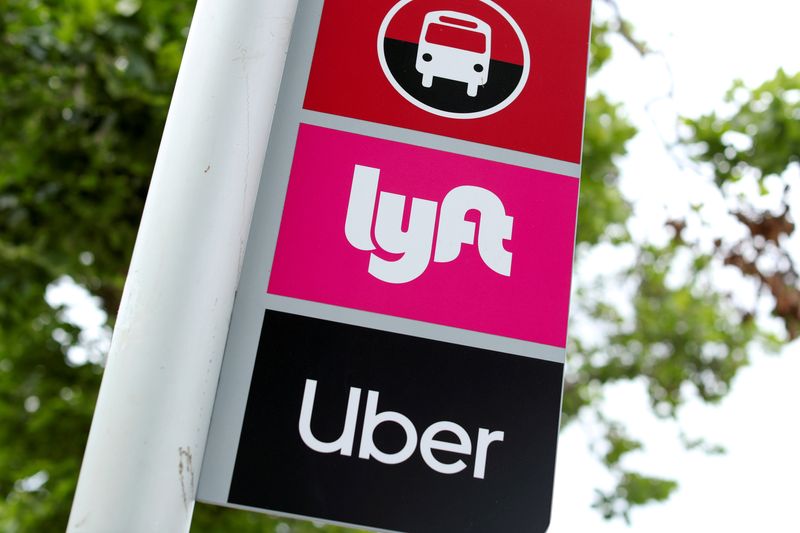By Nivedita Balu
(Reuters) - Lyft Inc (NASDAQ:LYFT) shares sank 20% to near record lows on Tuesday after a miss on active rider growth fanned fears that bigger rival Uber Technologies (NYSE:UBER) Inc was eating into its market share.
More than a dozen analysts slashed their price targets on Lyft by as much as $23 after third-quarter results. In stark contrast, investors had last week cheered Uber's results and bumper holiday-quarter forecast.
"We believe Uber has done a much better job at rebuilding driver supply, likely leaving Lyft with a structurally smaller share of the market than it had pre-pandemic," Atlantic Equities analyst James Cordwell said.
Active riders on Lyft's platform grew just 7.2% to 20.3 million in the July-September period, the slowest pace this year and a million below market expectations. Uber posted a 22% jump in active consumers in the rideshare segment during the same period.
"While we think Lyft will remain the second-largest ride-hailing platform in the U.S., we are now assuming Uber will slightly increase its market share over Lyft during the next few years," Morningstar analyst Ali Mogharabi said.
Lyft's stock was trading at $11.30, hovering near its record low of $10.83. The shares have lost more than 70% of their value this year, compared with Uber's 35% decline.
GRAPHIC: Lyft shares underperform rival Uber's https://graphics.reuters.com/LYFT-STOCKS/mopakmaaepa/Pasted%20image%201667905515054.png
Investors have also focused on Uber's delivery business that had also helped it ride out a slump in demand during lockdowns better than pure-play ride-hailing provider Lyft.
A cost-cutting drive should help ease some of the pressure and help boost Lyft's profitability, according to Daiwa Capital Markets analyst Jairam Nathan.
The company is betting on stronger demand and higher service fees to offset an expected increase in insurance-related costs for the current quarter.

Still, some analysts preferred Uber given its scale, business model and global presence.
"While we view Lyft's competitive position favorably, the company may need to demonstrate a quarter or two of growth at or above industry levels to bolster investor confidence," Canaccord Genuity analyst Michael Graham said.